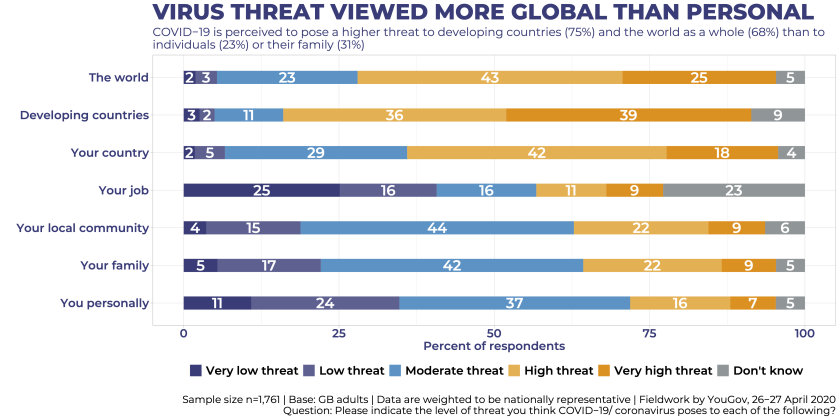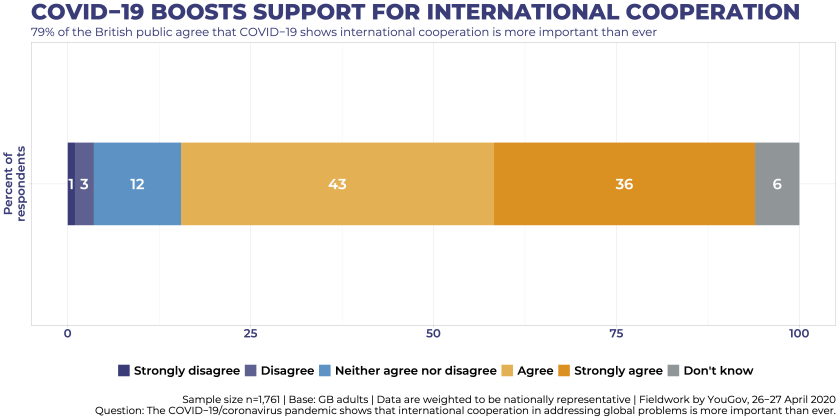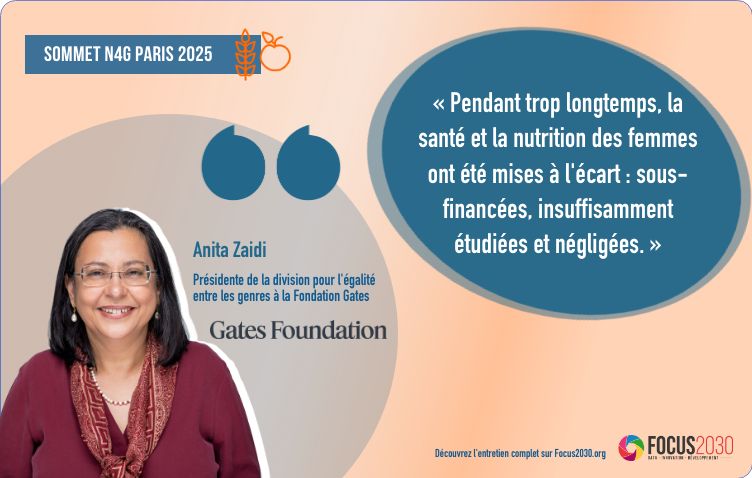Covid-19: Perceptions of the pandemic and support for international cooperation, initial conclusions from the British perspective
Publié le 29/05/2020.
As the COVID-19 pandemic continues to rage around the world, 1761 people representative of the population of the United Kingdom were asked to assess the level of “threat” that the COVID-19 virus poses to them for themselves, their families, their local communities, their work, their country, for developing countries and the world.
“Pandemics are scary. Evidence shows such threats induce deep evolutionary psychological mechanisms that increase our desire to turn inward and fear outsiders.“, say the study’s authors, members of the Development Engagement Lab.
Seen in this light, the Covid-19 pandemic is likely to foster national withdrawal, isolation and even rejection of others.
However, the preliminary conclusions of the sample survey conducted by our partners tend to show us the opposite .
While it seems logical that everyone should be concerned for their loved ones and for themselves in a crisis such as the one we are experiencing, the British seem equally aware that the threat weighs just as much on their country (60%) as on the rest of the world (68%), and consider the threat to be even greater for developing countries (75%), as the figure below shows.
The survey results show a clear trend. According to the respondents, “the further away the potentially affected person is, the greater the threat appears to be,” the authors of the study state.
And for good reason… The poorest countries, whose health systems are more fragile, will potentially find it more difficult to cope with the pandemic, even if at the time of writing the African continent seems to be spared more than Western countries.
With the realization that as long as the Covid-19 epidemic continues to circulate in one country the rest of the world will not be safe, 79% of the British consider that the current crisis has demonstrated more than ever the need for international cooperation.
Beyond what might at first glance appear to be an idealistic awareness of the need for greater international solidarity, the authors rather identify this widely shared feeling as a “pragmatic response” to the issue at hand. This new fact should therefore not be read as direct support for international organisations and international cooperation as a value, but rather as support for the solutions that they could jointly propose, particularly in the field of health.













